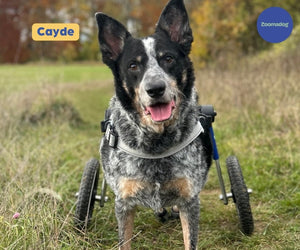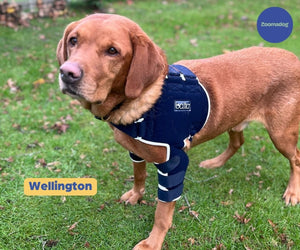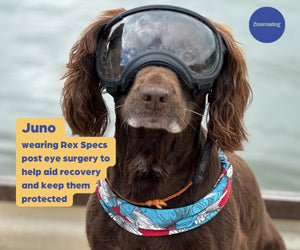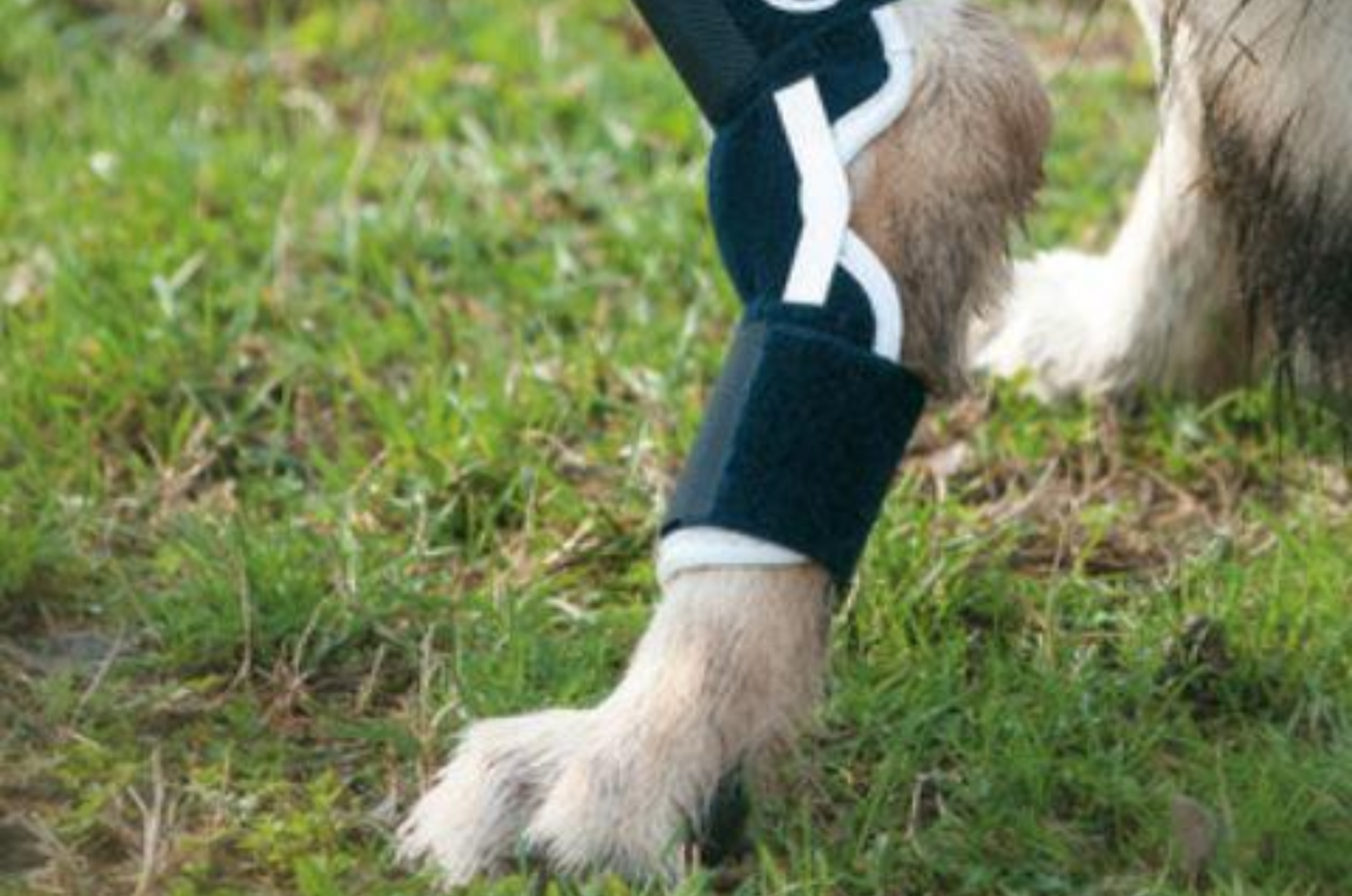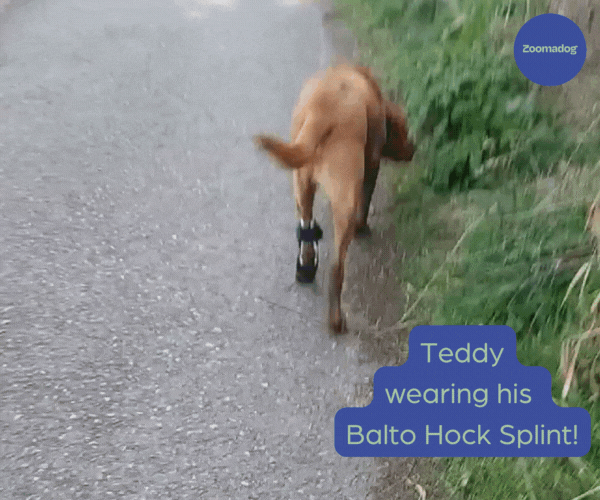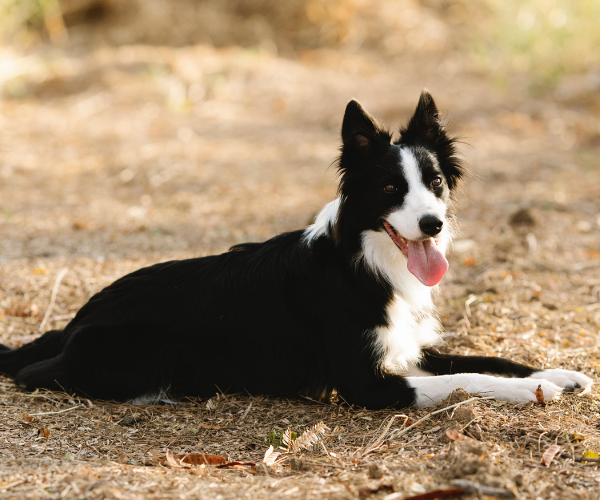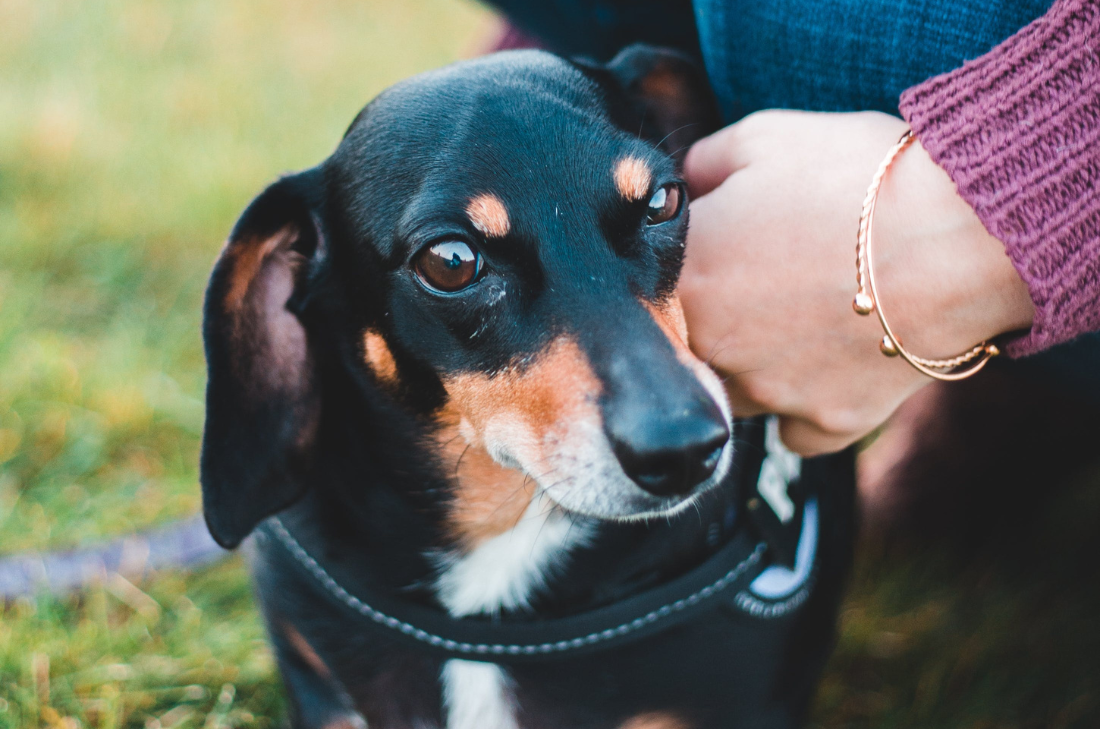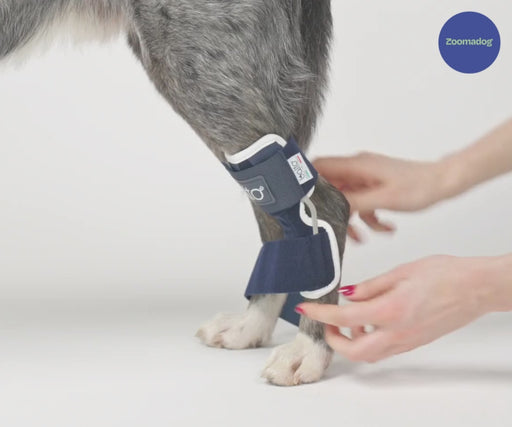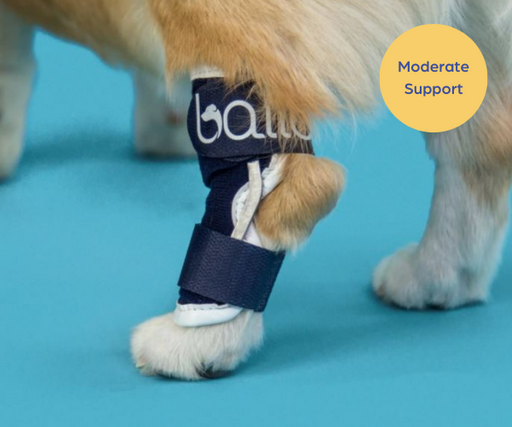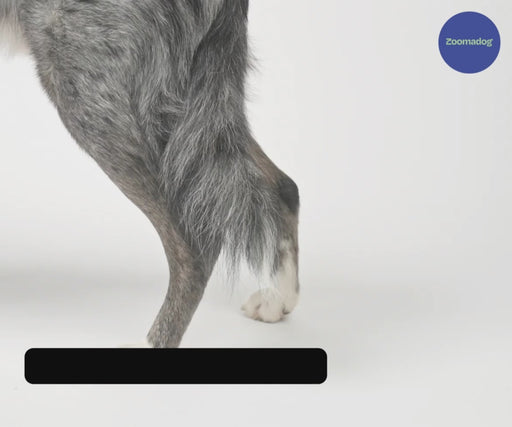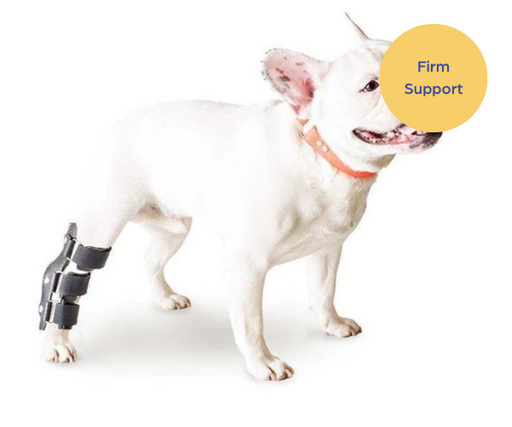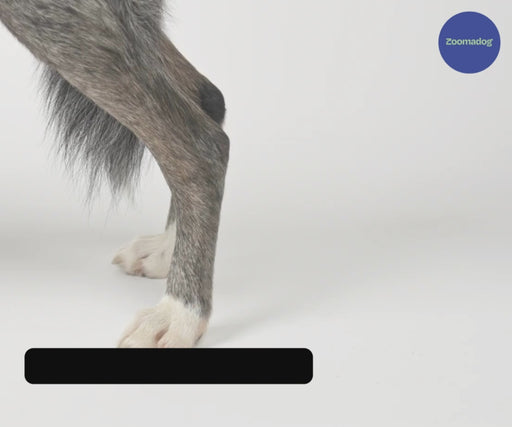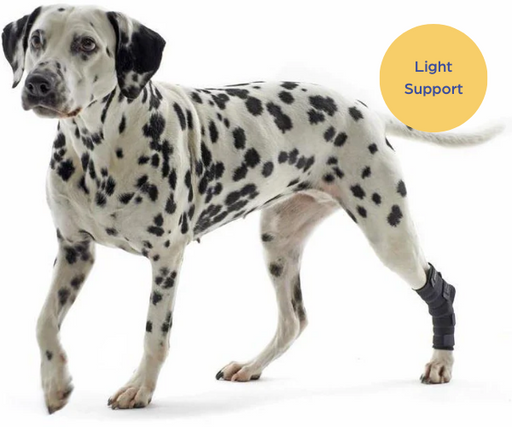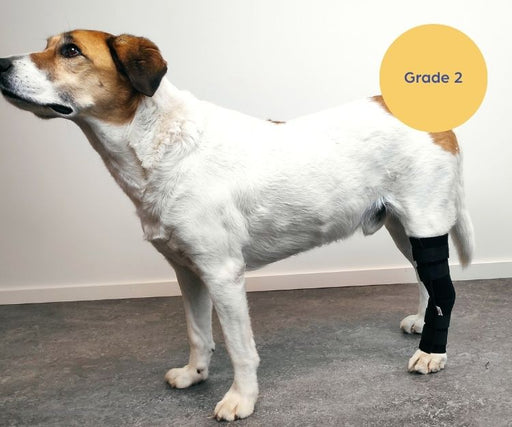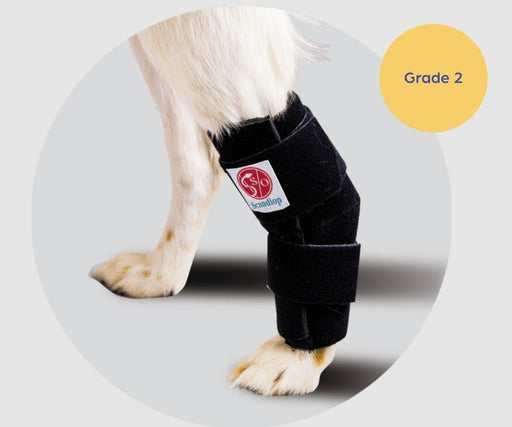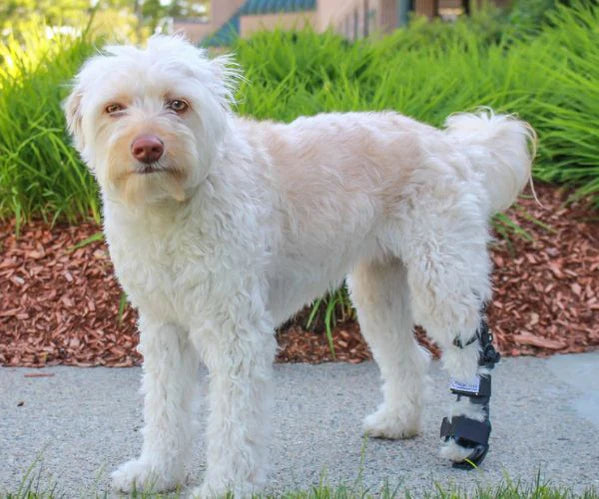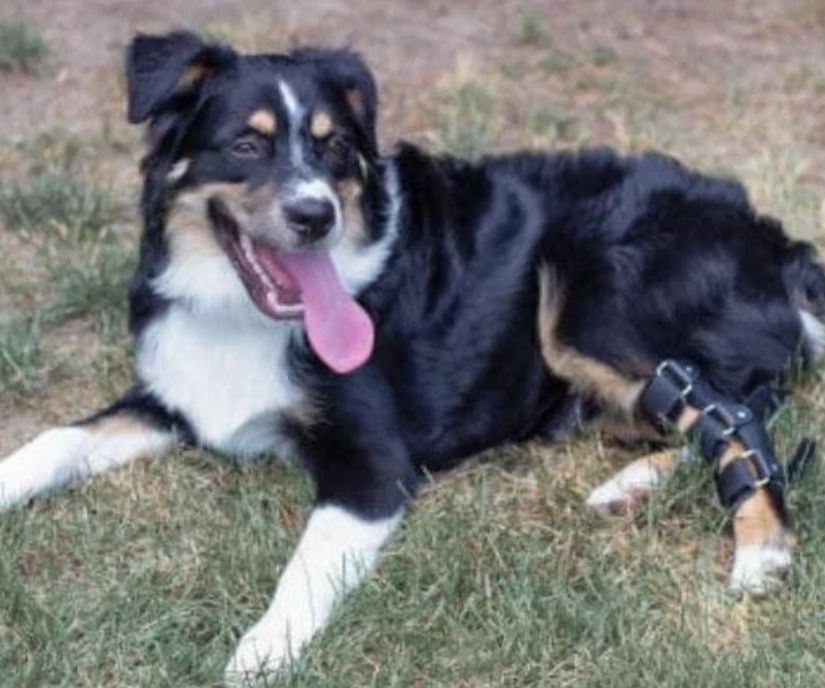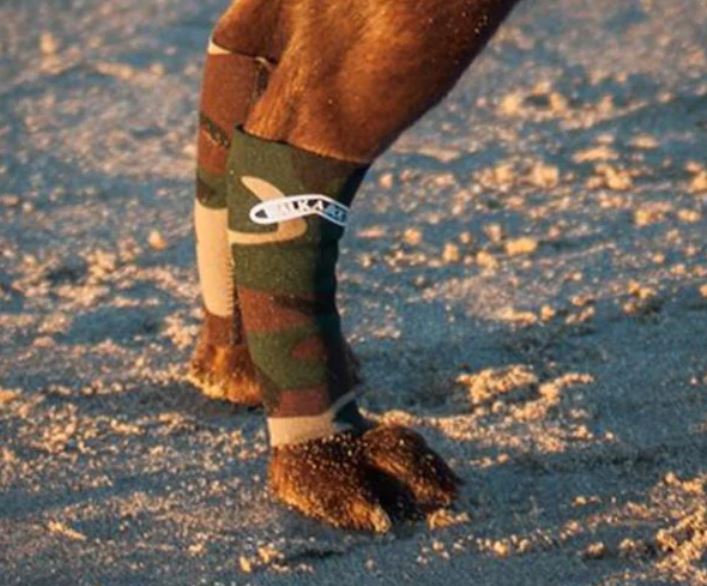How to help at home?
Limit activity and exercise, even indoors and this will aid healing. Consider a snuffle mat if your dog is very active and finds it difficult to cope with limited activity. Apply a brace or support.
If there’s obvious swelling, you can ‘cold hose’ your dog’s hock joint. Run cold water from a tap or shower over the affected joint. This can help reduce swelling and pain.
Make sure your dog has a comfortable bed upon which to rest and consider natural pain relief if your dog is showing signs of being in pain.
Treatment of Hock Injuries
Depending on what has caused your dog’s hock injury, will influence what treatment is most appropriate. Often applying a brace will give your dog the required support needed, to help them heal. In severe cases such as fractures or severe tears surgery may be needed. Chronic conditions such as osteoarthritis can only be managed, not fully treated, due to it being incurable. Supplements can greatly assist in managing conditions that cause chronic hock instability, as well as an appropriate supportive brace.
Conclusion
Dog hock injuries, including Achilles tendon rupture in dogs, demand prompt attention and appropriate care. Particularly if there’s an Achilles tendon injury, which can be difficult to diagnose, a delay in treatment can significantly worsen the prognosis. By staying vigilant for early signs, understanding preventative measures, and seeking timely veterinary assistance, you can contribute to your dog’s overall well-being and ensure a smoother recovery from hock injuries. Always consult your vet for personalised advice tailored to your dog’s specific needs.



